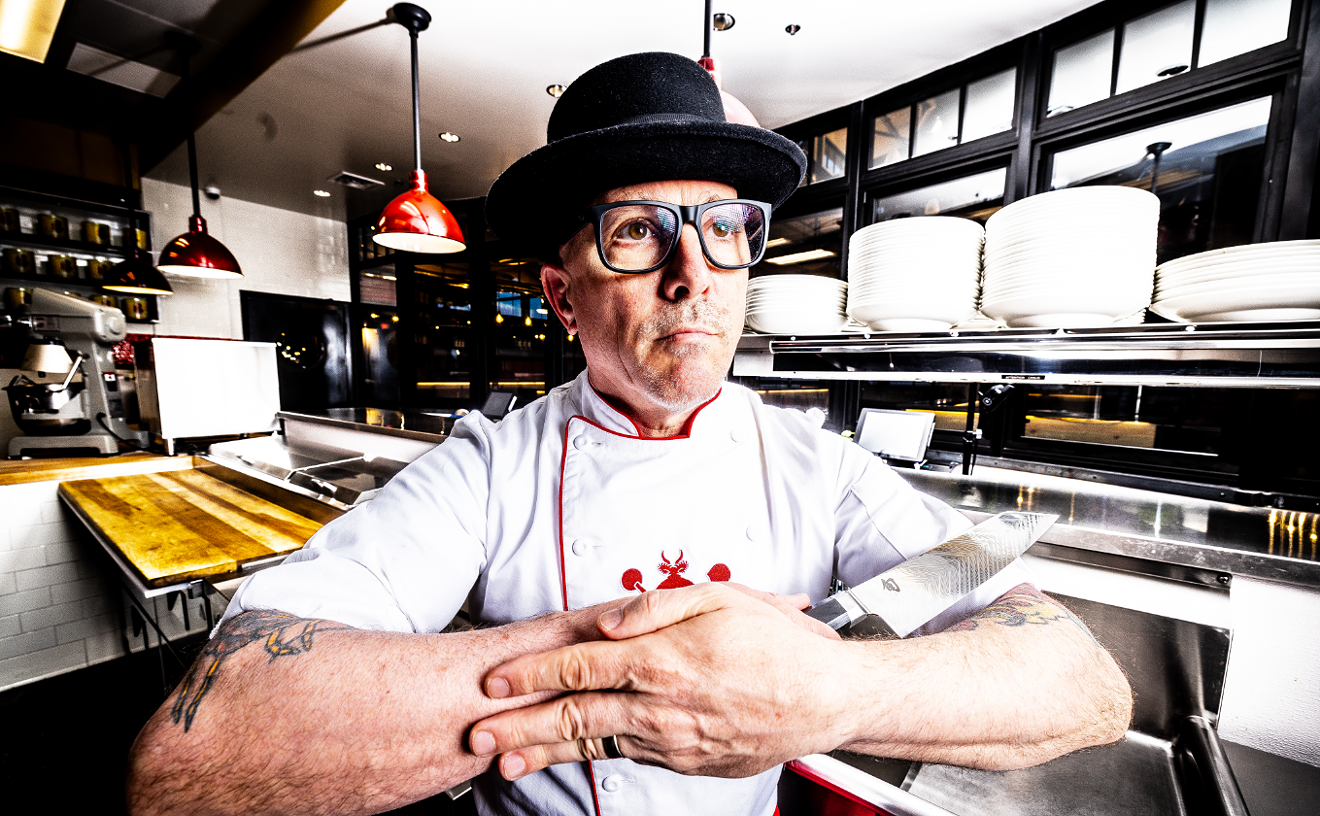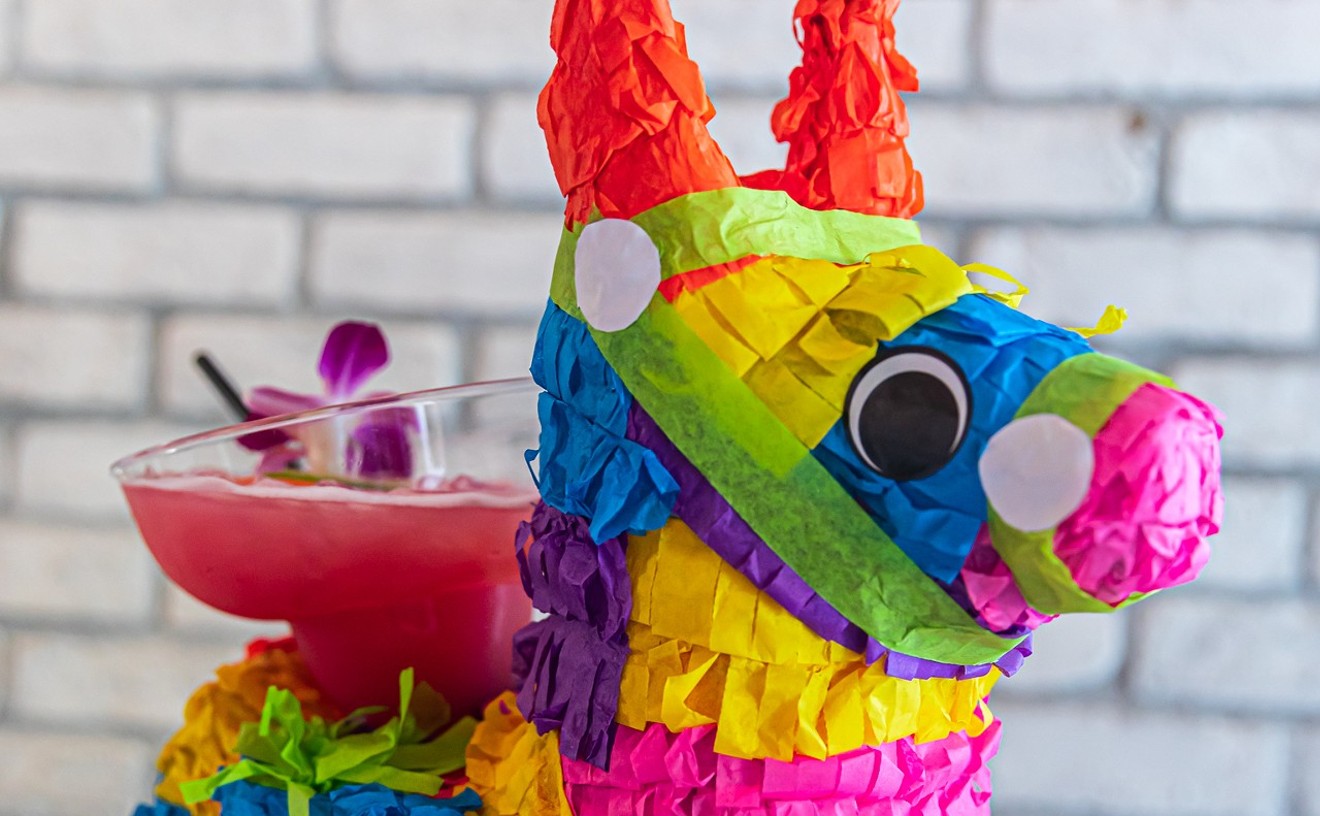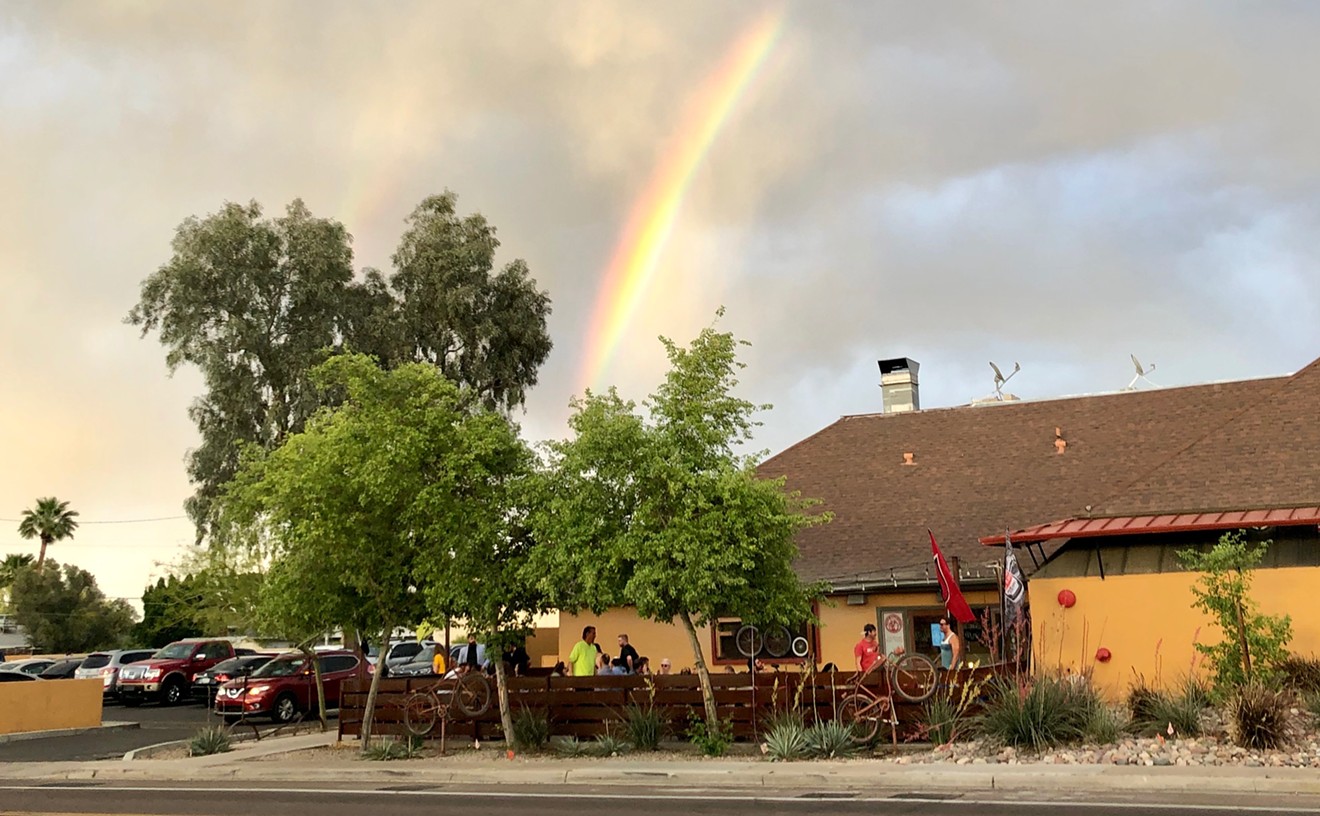Welcome to "Schaefer," in which Eric Schaefer -- a local guy with a big (but discerning) appetite and a sense of humor to match -- takes on the Phoenix food scene.
Who do you believe when you're reading about food? If you're like me, the answer would be "not many people." The world of food-related journalism is particularly sordid, to put it nicely.
Food writing has a notoriously low barrier to entry. (Hey, they even let me do it!) Writing about technical matters, economics, or other specialty subjects requires some sort of academic knowledge, but food? We all eat. And with the advent of Twitter, Yelp, and easy-to-produce blogs, everyone is a food writer.
See also: The Stupidity of the Adult Milkshake
Actually, I think it's ultimately a good thing. When more people talk about food, more people learn about places that might otherwise be off their culinary radar screens. That gives a chance for restaurants without big public relations and advertising budgets to compete against better-funded ventures. But it also means that you need to look at those tweets, Facebook posts, and blogs with much greater scrutiny.
Often, there is much more than meets the eye.
This journalistic ambiguity is not exclusive to bloggers and Yelpers, although that's where you see it most. John Mariani, the food critic for Esquire, is notorious for making his presence known in a restaurant. Allegedly, he despises anonymity. It is said that he'll connect with public relations people, have them take him to a variety of restaurants (never on his dime), and then write about how one or two of them were wonderful. Search the interwebs and you'll find more than a few restaurant owners complaining about how a visit from John Mariani makes them feel "dirty."
I agree with Mariani's pick of Virtu Honest Craft as a great new restaurant, but I assure you that his experience at any given restaurant is not like yours or mine. It seems like a great gig if you can get it, but how he sleeps at night is a mystery.
I don't mean to imply in any way that you, dear reader, aren't smart enough to read between the lines. You are, right? But it's hard for me not to let out an audible groan when I'm watching my Twitter feed fill with bursts of tweets from "influencers" raving about a restaurant at which they've all congregated for free food, compliments of the restaurant's public relation's team. Does anyone actually believe them?
(Editor's note: In the interest of full disclosure, we must admit that while we here at Chow Bella try to keep the "free food" to a bare minimum, and we conduct reviews anonymously and pick up the bill, we do send writers and photographers to free grand-opening events from time to time for the sake of timeliness and capturing the scene.)
I've said it before and, at the risk of boring you, I'll say it again: Everything tastes better when it's free. And I don't fault the restaurants for hosting events featuring free food, with the intent of generating social media buzz. It's an inexpensive way to reach a big audience, and it can be well targeted if you invite the right people. People who are into food generally hang out with people who are into food and like to talk about it. But you're much more inclined to rave about a particular meal when you're not picking up a $500 tab, especially when you've also been plied with a few glasses of wine.
I don't know about you, but I have yet to see a tweet generated from a media event that says, "This food sucks."
It boils down to an issue of disclosure. The commonly accepted way to disclose that things may be more than what they seem is with "#sp," used to denote "sponsored." That means your opinion is not purely objective; there was a quid pro quo. But so many people are resistant to this idea, and I'm not sure why. Are they afraid to admit the obvious, that they might not otherwise even be at this restaurant if it wasn't for the fact that it was free? Do they just feel "dirty" because they feel some sort of obligation to the event organizer to be nice, even though the meal was mediocre? Or do they just think we're dumb enough not to notice? Most of the public relations people are good people just trying to help their client, but it seems that re-education is needed about what is -- and isn't -- considered ethical.
More often than not, I just feel sorry for the restaurant owner. Most of them are running on small budgets and thin margins, and have their every last asset tied-up into the success or failure of their endeavor. No matter how bad the restaurant, I always feel sad when one of them fails because it is someone's dream, denied. And so I wonder why they allow their public relations people to convince them to underwrite the significant expense of wining and dining a bunch of people that will most likely never return, but might tell their friends about it. It reeks of public relations amateurism, and I wish that more restaurants would find better ways to spend their marketing resources, limited as they may be. It seems to me that such events are good for a short-term burst, but do nothing to ensure longevity for the restaurant.
I used to think that everyone was a food writer. Now I'm starting to think that everyone is a public relations agent. And that begs the question: What's the barrier to entry for that profession?










